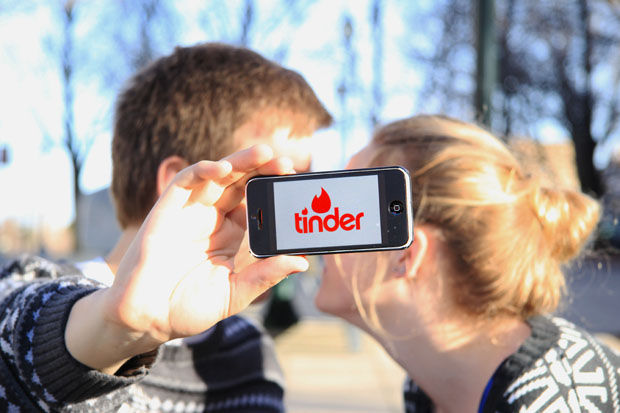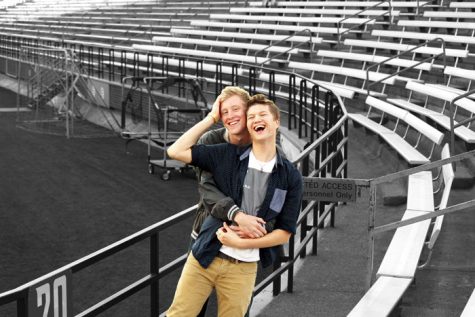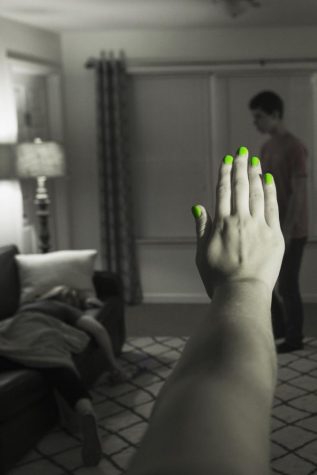A whole new (digital) world
February 6, 2015
The times have certainly changed since the blockbuster hit “You’ve Got Mail” came out nearly two decades ago.
Nowadays, it’s fairly common to know couples that met online. One Pew study found that five percent of married people found their significant other on the web, and 10 percent of college students use dating websites or apps.
“There’s still a slight stigma around online dating, but it’s becoming more common,” said Stacey Hust, an associate professor who studies media and relationships.
Laurie Smith-Nelson, clinical assistant professor in psychology, said that while online dating used to be seen as something sketchy and dangerous, it has come to be seen as a more legitimate method in recent years.
“It’s a way to meet people you never would’ve met before,” she said. “It has amazing potential, but you have to be smart.”
Aside from just becoming a platform to meet potential new partners, technology has also changed the course of nearly everything that happens afterward, Hust said.
Before going on a first date, technology allows us to view others from a distance and decide if we’re interested in them, said Nicole O’Donnell, a graduate communication student.
“The ability to message or ‘like’ someone from the safety of your electronic device minimizes the risk of rejection,” she said.
When the big moment comes and you finally ask them out for coffee, technology has probably played a role in getting you to that point, O’Donnell said.
By the time that first date rolls around, social media has also changed what the potential partners can expect to talk about, too, Hust said.
“You can find out so much about people in a short amount of time through sites like Facebook, and it can change the dynamics of things like first date conversations,” Hust said.
New technology also means that those in a relationship must talk about the unique kinds of problems that come up around it, she said.
“There are so many unspoken rules and questions that people have when it comes to dating and technology,” O’Donnell said.
When do you become “Facebook official?” Do you share each other’s passwords? Can you like other people’s photos? These are all new areas that couples must navigate together, Hust said
“Everything is evolving, and some couples aren’t sure how to handle this yet,” she said.
Of course, not everyone is looking for a long-term relationship, and apps like Tinder and Grindr are designed for quick physical assessments and hooking up, O’Donnell said.
“While hookup culture is present on college campuses, it does come with physical and emotional risks that should not be overlooked,” she said.
O’Donnell quoted a study finding that while many people endorse the idea of hooking up, they express more negative personal experiences with it than positive.
“Research shows there is a disconnect between feelings about hookup culture and actually participating in it,” she said.
Even in an online dating scenario, open communication is still the most important factor in a healthy relationship, Hust said.
“Technology isn’t good or bad, it just changes the way we communicate,” Smith-Nelson said.
O’Donnell, Hust and Smith-Nelson all said it was important to allow your partner time to respond to your texts, tweets and other notifications.
“I often think we feel the need to respond quickly, instead of thinking about response,” said Smith-Nelson. “That doesn’t lend itself well to thoughtfulness.”















